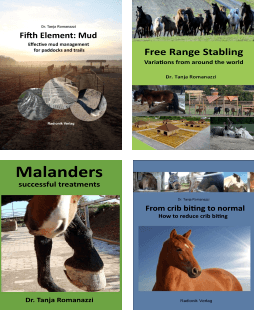Free Range Stabling and Fords
As a number of questions frequently come up on the subject of fords and free range stabling tends, I decided to collect a few of them and address them here.
Will the horses go into the ford?
Yes (apart from a few exceptions). Most horses enjoy drinking from a ford. A lot of horses apparently prefer this type of natural water supply to artificial water troughs (which should of course also be constantly kept available and free of ice). We only have a couple of exceptions who presumably would rather not get their hooves wet and so prefer to use the water troughs.
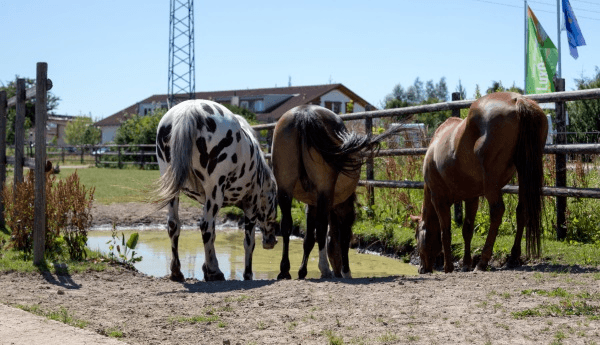
Photo of Stefan Köhler / Anne Schmidt
In addition, every group has a couple of “seahorses” who like to play in the water.
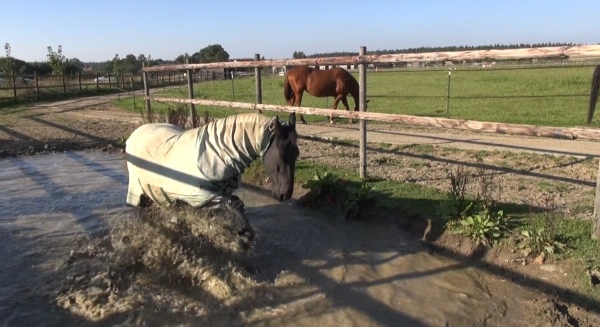
How do you build a ford?
Our soil has a high clay content, so all we had to do was dig a large hole with an excavator. The water stays in place without a sealing agent. In one of the groups, we merely added a mixture of sand and gravel to prevent the bottom from becoming too muddy.
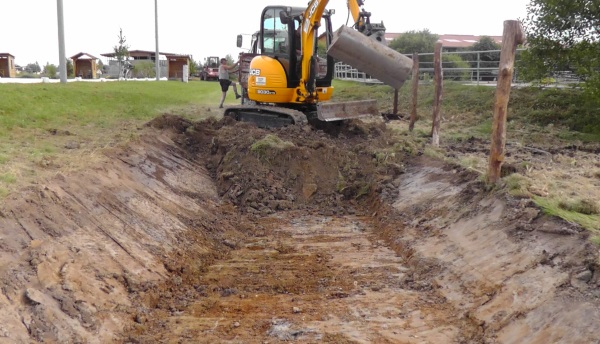
However, if your soil is sandy (which is great for footings, not so great for fords), you will have to add a seal. For example, you could use an EPDM liner. EPDM is a very elastic synthetic rubber with a high life expectancy. Its main advantage over run-of-the-mill PVC liners is that it does not contain plasticisers, which can leak out of the plastic after lengthy exposure to the sun. To protect the liner from sharp stones and your horses’ hooves, place sturdy fabric liners underneath and on top of the rubber. Then pour an approximately 20 cm layer of sand / gravel on top.
What about the water quality?
Many people assume that the water will quickly become brackish and need changing regularly. Up until now, we has not been our experience.
First of all, it is interesting to note that none of the horses in any of the groups ever drop dung in the fords. So keeping the water holes clean would appear to be part of their natural behaviour.
Apart from this, the water quality will certainly depend on your respective surroundings. If your neighbour uses a lot of liquid manure, or if there are trees near the ford, dropping a great many leaves into the water, then the resulting water quality will be a lot different than if the ford is in an open space.
If you are unsure about the quality of your water, you should have it checked (inform the lab that it’s drinking water for animals). I have had the water from one of our fords tested and it was in perfectly clean condition.
What can I do to maintain or improve water quality?
We have added fenced-off areas to two of our fords and planted aquatic plants there to improve the water quality.
The positive effects can be seen in Paddock Trail 2 in particular, where the plants have proliferated nicely.
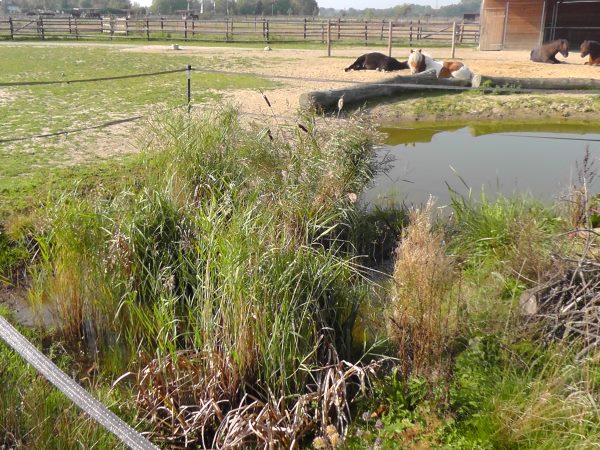
If in spite of this you do have problems with your water quality, you could try using effective micro-organisms to improve it.
And what about the wintertime? Does the ford have to be fenced off?
No, you can just keep it accessible. Your horses will know exactly where the ford is, even if it’s snowed under. Most horses will ignore the ford during the winter. Some might walk up to it, crack a hole in the ice and drink from it.
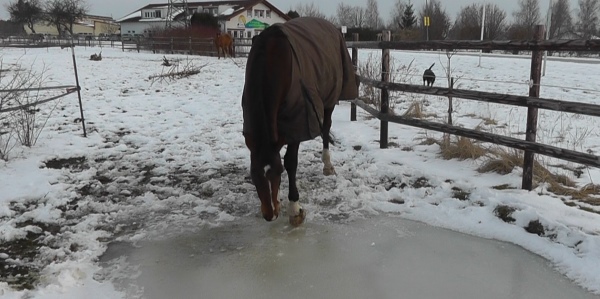
Won’t it attract mosquitos?
I’ve not noticed a difference with ours so far. Ensuring good water quality is certainly important. In addition, it can be helpful to keep your free range stabling facilities as eco-friendly as possible (no artificial fertilizers, plenty of hedges, clearance cairns, deadwood, fallow strips of land …) to provide a habitat for animals that feed on mosquitos.

